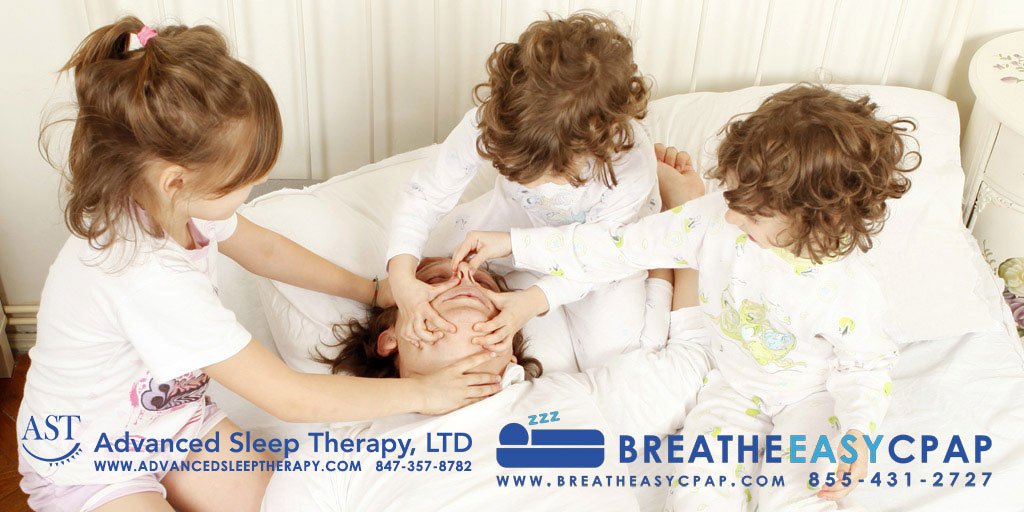Sleep Apnea in Children
Is your child is snoring at night? If so, you may have brushed it off as an adorable part of childhood, or you may be worried that something serious is going on. Snoring is a cornerstone symptom of sleep apnea, and while most adults snore occasionally, healthcare professionals recommend that those who are snoring and exhibiting other symptoms of the disease visit their primary health care provider. In adults, sleep apnea may present with depression, high blood pressure, and weight gain. But is this the same for children?
Recognizing the Symptoms of Sleep Apnea in Children
Sometimes bedwetting is the first sign of sleep apnea in children. This can be an embarrassing experience, especially if they are at an age where they are having sleepovers with friends. Children with sleep apnea often suffer socially. Frequent wakings or micro-arousals at night makes them feel fatigued and may lead to behavior problems and restlessness during the day.
Causes of Sleep Apnea in Children
If your child snores frequently or experiences frequent episodes of loud snoring, they may be developing issues with their tonsils or adenoids. These issues often cause airway obstruction while asleep. This blockage of the airway is better known as obstructive sleep apnea. Children who are overweight have an increased risk for developing sleep apnea because of the excess pressure around their necks. This extra weight makes their upper airway more readily collapsible while they sleep. Children who suffer from neuromuscular diseases, like cerebral palsy may be at a greater risk of developing sleep problems.
No matter the cause, children need to be treated for this disorder. Like adults, children who lack treatment for their sleep apnea are at an increased risk for serious health problems. Children with sleep apnea could develop high blood pressure and breathing problems.
Treating Sleep Apnea in Children
If your child’s sleep apnea is the caused by oversized tonsils and adenoids or a large tongue or tongue positioning, surgery could be required. Children who are overweight may need to practice lifestyle changes. Your child’s doctor may suggest a change in eating habits like a reduction in fats or sugars. Exercise will also likely be encouraged. If these interventions fail to help or your child’s sleep apnea is the result of a neuromuscular disorder, a continuous positive airway pressure machine will likely be the next step.
Continuous Positive Airway Pressure therapy, or the use of a CPAP machine helps millions of Americans struggling with sleep apnea. Forced air supplied through a child’s sized sleep apnea mask keeps the child’s airway open, preventing snoring and the associated effects of the illness.
CPAP Therapy for Children
CPAP therapy does not hurt. Children should be reminded of this often when the concept of treatment is discussed. Talk to your child’s doctor about sleep apnea and visit a reliable CPAP supplier who stocks CPAP masks made especially for children. When talking to your children, work to end any fears that they may have about their CPAP mask and sleep apnea treatment. Contact the sleep apnea treatment team at Breatheeasycpap.com if you have any questions about ensuring your child not only gets the treatment they need but goes into therapy without reservations. Together, we can promote healthy sleep in your entire family.

